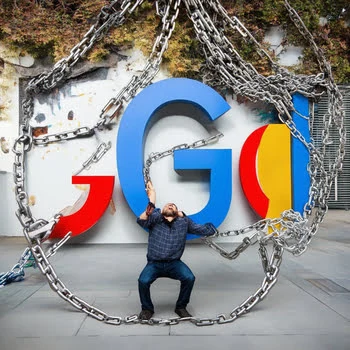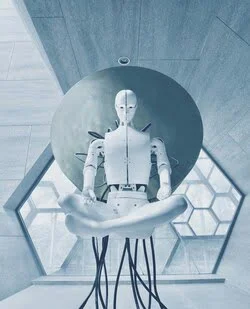How Websites and Web Developers Can Stay Relevant in the Age of AI

Spoiler: I don’t have the answers, just some ideas that might age as well as milk. | January 27, 2025
This article is entirely independent and contains no sponsored content or affiliate links — it’s written to provide unbiased information for travelers. Main photo by: Alex Shuper.
Let me get this out of the way: I don’t actually know how to keep websites and web developers relevant in the face of AI. As a web developer, I’m just as worried as the rest of you. Even more ominous, I’m writing this article on the same day that a Chinese startup unveiled DeepSeek, an AI so powerful that it sent shockwaves through Wall Street, tanked tech stocks, and set Twitter ablaze with doomsday predictions about the U.S. losing its AI dominance. Meanwhile, here I am, optimistically tapping out words on a keyboard, trying to tell you why your website or career might still matter next year. The irony isn’t lost on me.
If you’re a web developer or content creator, you’ve probably had that creeping sense of dread. Tools like ChatGPT have been rewriting the rules of productivity. They don’t just help us—they compete with us. AI is creating blogs, coding entire websites, and now even answering search queries without sending users to the websites that provided the answers in the first place. The traditional ways of gaining visibility online are slipping through our fingers, and it’s easy to feel like we’re playing a rigged game.
So, how do web developers and content creators stay relevant? Well, I don’t have a definitive answer, but I’ve been mulling over some ideas. Let’s start with what I think won’t work, and then I’ll get to what might work—at least for now.
First, if your website’s primary function is to answer straightforward questions, you’re in trouble. AI is already ridiculously good at this, and it’s only getting better. People no longer need to visit your site to find out how tall Mount Everest is or when the dinosaurs went extinct. AI gives them the answer in seconds, crediting no one and leaving the content creator high and dry. If your website is little more than an elaborate FAQ, you’re feeding a machine that will happily eat your lunch.
Another pitfall is relying on blogs. Trust me, I know the hypocrisy of warning against blogs in the middle of a blog. But hear me out: AI can generate blog posts faster than you can open your word processor, flooding the internet with so much content that even great articles risk being buried. Sure, time-sensitive and contemporary pieces might still have a place, but their lifespan is short. Once AI absorbs the information, your carefully crafted piece becomes irrelevant.

So, what’s the alternative? I think it lies in doing what AI can’t—or at least what it can’t do yet. To begin, let’s first acknowledge the uncomfortable truth about the relationship between web developers and the search giant that holds the fate of our websites in its algorithmic grip. Let’s face it: web developers are at the mercy of Google. Without a top ranking, your website might as well not exist. The catch? Google rewards sites that use highly machine-readable formats, like schema markup and semantic HTML, essentially handing AI the keys to nick your content. Skipping these formats to confuse the AI isn’t really an option either, because, like it or not, we’re all bound to serve our merciless Google overlord. But we can still create content that’s harder for AI to pilfer. One way to do this might be to use dynamic, backend-driven content instead of static HTML. Think interactive tools, databases, and user-specific results rather than long strings of text that AI can scrape and summarize. For example, EcoNaturalist.com doesn’t just provide a blog about eco-lodges; it allows users to search dynamically for lodges that match their preferences. That’s not just useful—it’s harder for AI to replicate.
Another approach is to focus on creating immersive experiences. AI excels at quick answers and summaries, but it falters when tasked with delivering rich, multi-sensory experiences. Websites that offer something interactive, whether it’s 360-degree visuals, virtual tours, or in-depth learning tools, have a fighting chance. EcoNaturalist.com, for instance, aims to go beyond answering travelers’ questions by offering answers to questions they didn’t even know to ask. Add in unique visual or auditory elements, like a 360-degree video of a rainforest, and you’ve created something more engaging than a list of facts.

Trust is another area where humans still have the upper hand. As AI-generated content floods the internet, users will increasingly look for sources they can trust. Building a brand that represents expertise, honesty, and a genuine connection with its audience could be the difference between getting lost in the noise and being heard. People will gravitate toward websites that feel authentic, especially when they’re drowning in AI-generated mediocrity. It’s not enough to offer information; you need to offer insight, backed by experience and a human touch. And, hey, maybe AI search engines will eventually learn to recognize and disfavor AI generated content. I’m almost anticipating that level of ironic hypocrisy.
Of course, staying relevant also means staying on the cutting edge of technology. AI isn’t the only frontier. Virtual and augmented reality, 360-degree visuals, Web3 integrations, and IoT-connected experiences all offer ways to innovate. EcoNaturalist.com is exploring 360-degree videos and hopes to one day offer immersive 3D environments. These aren’t mainstream yet, but getting ahead of the curve could provide a competitive advantage. The key is to think beyond what’s already oversaturated and explore technologies that are still maturing.
Finally, there’s the age-old advice to focus on quality over quantity. AI thrives on rephrasing and regurgitating existing content. To stand out, you need to dig deeper. Discover information that isn’t widely available, share stories that only you can tell, and give a platform to voices that might otherwise go unheard. EcoNaturalist.com aims to do just that, providing unique insights into eco-tourism and platforming environmentally minded people and businesses that don’t yet have adequate (or any) internet exposure.
The truth is, none of this is a silver bullet, and by the time you read this article, I might have already changed my mind on some of these ideas. AI will continue to evolve, and staying relevant will require constant adaptation. But as long as we remember what makes humans unique—our creativity, authenticity, and ability to connect with others—I think there’s hope. It’s not about beating AI at its game; it’s about playing a different game altogether.
For now, I’ll keep building, writing, and experimenting. And who knows? Maybe one day, DeepSeek or ChatGPT will read this and chuckle at how quaint and naive it all sounds. But until then, I’m giving it my best shot.
Disclaimer: This article was written with the help of ChatGPT, an AI tool capable of creating the very content it warns you about.






